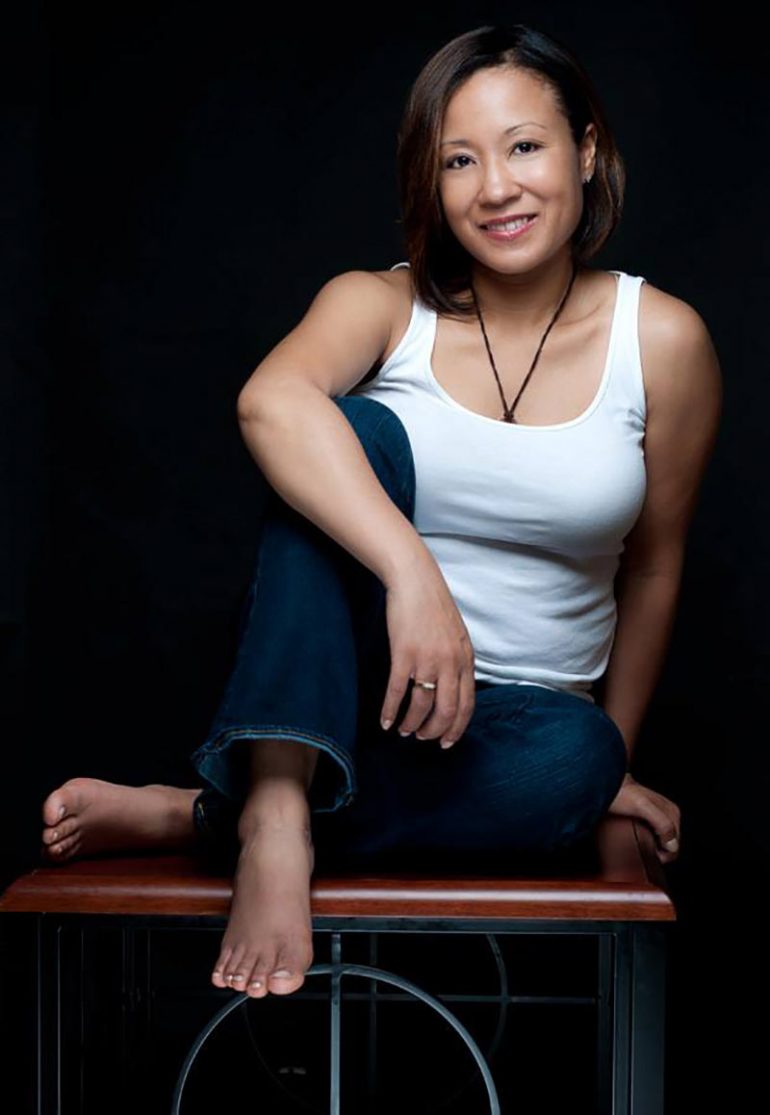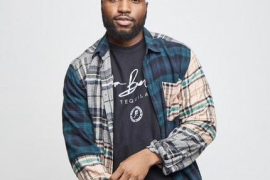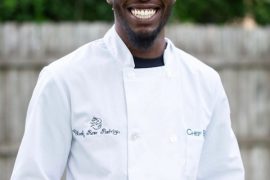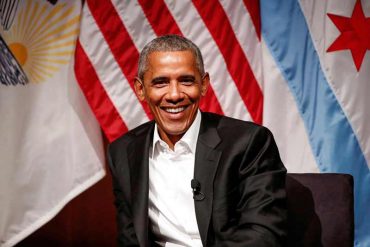Affectionately known as “The High Achievers Therapist”, Dr. Jinnie Cristerna, LCSW, CHt, is a licensed Clinical Social Worker, Reverend, and RoHun Doctor that works with clients to help them release emotional pain and navigate psychological roadblocks so they can achieve their personal and professional goals.
Specializing in psychotherapy, heart centered hypnotherapy, vibrational energy, meditation, and personality development, Dr. Jinnie has a nearly 90% success rate with her clients and is fiercely committed to helping clients have the psychological resolve to create the life, career, or business they’ve always dreamed about. Trained at the University of Chicago and Delphi University, her extensive background allows her to identify the services that may give you the best overall outcome in the shortest amount of time
As a nationally recognized mental health expert, she has effectively worked with high achieving individuals, families, and corporations for over 25 years and has been featured by various media outlets including ABC News, CBS News, Ebony Magazine, NPR Radio, WCIU: You and Me in the Morning, and WVON Radio
N’Digo recently sat down with Dr. Jinnie to discuss her company, International High Achievers, how she first picked up on her ability to sense people’s feeling at an early age, and the on-going stigma in the black community regarding mental health.
Tell us about your childhood and when you picked up on your ability to sense people’s feelings?
I was around 4 years old when I remember noticing “things” about other people. By the time I was 7, being aware of what people were feeling became pretty normal. I could tell when people needed or wanted to talk about something, if they were holding something back, or if they were just outright being untruthful. In hindsight, it was pretty cool; I mean, I could keep myself safe to a certain degree but the downside was that I wasn’t the healthiest person with boundaries. In fact, I didn’t know personal boundaries even existed. Nevertheless, I was often sought after by a lot of older women and some peers when they needed to talk. I seemed to be a better listener than the adults and for some strange reason I knew what to say and how to capture the essence of what they were feeling so they found relief. I guess I became the resident therapist of Englewood. laughs There were downsides to being easy to talk to though. Once my usefulness was done, they left and never reached back out to see how I was doing or give me updates on their problems. It was truly one-sided; like many things in life tend to be.
Did you always know you wanted to go down this path professionally or did you dream of being something else and had to respond to your calling?
Absolutely not. I just knew I was going to be a doctor or a lawyer. They made a lot of money, or so I thought. I didn’t even know people paid to talk to someone about their problems. Had I known that, I would’ve charged a nickel for every minute they talked to me back in the day. Instead I just consider it as having advanced training for my current career. I actually came into this by complete accident. Long story short, I volunteered in the ER of a hospital during college and began noticing that people became sick not because of a virus or something like that but because they had a broken heart, worried too much, felt a lot of guilt or shame, or even worse, wanted to die on an unconscious level but were afraid they would go to hell if they killed themselves.
And that’s when you knew that this field is what you needed to pursue?
After that realization, I concluded that there wasn’t anything I could do to really help anyone “heal” as a doctor because most medical conditions begin in the mind and not in the body. Even then, I didn’t know or think I’d become a therapist or do what I am doing now-although in hindsight it makes perfect sense. So after that realization, I paid more attention to people when we talked and I noticed that I began listening differently. I began listening to what they didn’t say and spoke to those things. When I combined that with sensing how they were feeling, I noticed they not only experienced relief but they felt better physically. All of a sudden, their backs didn’t hurt and the pain in their neck went away. They were also nicer people afterwards laughs
What is International High Achievers and how did you conceive the concept?
International High Achievers provides integrative mental health, but it is actually more than that. It is a very special place. It’s not a clinic or a center, but a sanctuary for anyone who is looking to heal their soul so they can grow and succeed in whatever they choose to do in life within a very short period of time. While this can include talk therapy or psychotherapy, the most sought out services are hypnotherapy, yhandi’s inner light and rohun.
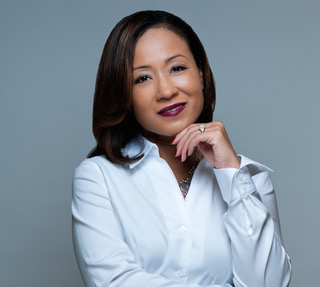 Most of the people who come to me are professionals, executives, or entrepreneurs and they don’t have a lot of time. They are looking for deep, lasting healing they can feel and see reflected back to them rapidly. Those who are ready and committed do one of the specialty services. After doing their work it’s not uncommon for them to bring their children or companies into the fold so they can evolve together. IHA is a safe place where people can look at and release those parts of themselves that no longer serve their highest good. The look at and heal those parts of themselves that are victims of abusers of power in order to deconstruct their illusions. I didn’t conceive the concept of soul healing. I’m just simply a guide for those who are ready to heal and what ended up happening was as my clients evolved – and often it was quickly. I needed to find ways to help them continue to grow because hey didn’t want to go and see anyone else.
Most of the people who come to me are professionals, executives, or entrepreneurs and they don’t have a lot of time. They are looking for deep, lasting healing they can feel and see reflected back to them rapidly. Those who are ready and committed do one of the specialty services. After doing their work it’s not uncommon for them to bring their children or companies into the fold so they can evolve together. IHA is a safe place where people can look at and release those parts of themselves that no longer serve their highest good. The look at and heal those parts of themselves that are victims of abusers of power in order to deconstruct their illusions. I didn’t conceive the concept of soul healing. I’m just simply a guide for those who are ready to heal and what ended up happening was as my clients evolved – and often it was quickly. I needed to find ways to help them continue to grow because hey didn’t want to go and see anyone else.
On your website you state that one of the things you’ve learned in your years of work is that everything one needs to know was learned in Kindergarten. Can you expound on that sentiment?
Basically, life is simple. We just make it complicated. We forget that we all came from love and as part of the process of being human, our love has been covered up in layers of shame, guilt, deceit, unworthiness, jealousy, lies, helplessness, fear, and judgement. When we were in kindergarten – long before common core – we were encouraged to imagine, play and value our child-like eyes. We didn’t have to remember that we were love or loved, we knew it at a soul level. As we grew older life hardened us to who we really are until we forgot. So with that being said, if we can learn how to remember again, we can reconnect with our child-like innocence and combine it with our wisdom of experience to create discernment and there is nothing we wouldn’t be able to do. Until we do this, we will struggle in our aimless attempts to force and control others because we have forgotten how to regulate ourselves. All of the answers we’ve ever wanted know to life exists within us. yet we continue to look outside to others to give us something we already have. We are like fish in an ocean determined to discover water.
In your opinion, what the biggest misconception people have about seeking therapy?
The biggest misconception about therapy is that if you go you must be crazy. I’ve been practicing for over 25 years and I haven’t met a crazy person yet. I’ve worked on psych units, in intensive outpatient settings and with soccer moms and not one crazy person has come across my path.
Can you talk about the importance of people of color changing their views on mental health issues and seeing therapy as a viable option?
I’ll say this – everyone should see a therapist. It doesn’t mean that you need to be in their office every week for 15 years, but it does mean that you should get feedback from someone who isn’t vested in the outcome of your life or decisions. This helps you to reduce your blind spots and make better choices. The stigma in the African American community about therapy has some legitimacy, though that has changed considerably over the past few decades. I mean people of color have been deemed as less than and made to be the scapegoat of social problems for centuries. With limited research and appropriate treatment by trained clinicians, it wasn’t uncommon for people of color to feel and be misunderstood. Again, that has changed quite a bit with more people of color providing mental health services and basic training in cultural sensitivity that issue has lessened over time. With that said, it’s important to work with a qualified practitioner who respects you and is capable of helping you heal the from the untruths about who you are as a person. The universal truth is everyone has a shadow side and that needs to be healed and released – unless you’re Ghandi. Working on yourself is a good thing no matter what you call it. In fact, some of my clients don’t call me their therapist they call me their coach, confidant, etc. So use whatever point of reference that makes you comfortable, just get in and start working on becoming a better you today!
What can people expect when calling in for the free 15 minute introductory consultation that you offer all perspective clients?
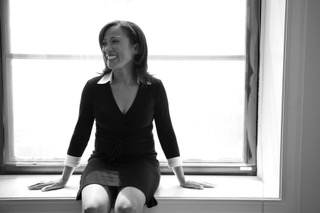 You can expect me to open and honest about whether or not I can help you. I don’t take clients that I don’t believe I can help – that’s bad karma. I will answer any questions about the services that I offer and what you can expect to happen. You can expect me to challenge the thoughts that have brought you in to work with me. If you’re unable to tolerate me asking a question or unwilling to take personal responsibility for their treatment, then now probably isnt the best time to work with me. While I am very compassionate, it isn’t my job to convince you that I am the best person to help you; it’s the clients job to decide if they want my help and to work with me.
You can expect me to open and honest about whether or not I can help you. I don’t take clients that I don’t believe I can help – that’s bad karma. I will answer any questions about the services that I offer and what you can expect to happen. You can expect me to challenge the thoughts that have brought you in to work with me. If you’re unable to tolerate me asking a question or unwilling to take personal responsibility for their treatment, then now probably isnt the best time to work with me. While I am very compassionate, it isn’t my job to convince you that I am the best person to help you; it’s the clients job to decide if they want my help and to work with me.
Best advice to straddling the fence and considering therapy of some sort?
If you’re wondering if you would benefit from therapy, you probably should go and see if in fact you would. The key is to go with an open heart and mind. Do your due diligence and schedule an appointment with someone you can actually see and would like to work with.
What are three albums that you love and cant live without?
Anything that Luther has made, pretty much any Earth, Wind and Fire album as well, and “Nirvana Groove” by David and Steve Gordon
What’s something people would be surprised to know about you?
That I won the Silver and Bronze medal in the Taekwondo US Open for Olympic Sparring and the Gold medal in the US Nationals.
Favorite quote or affirmation?
Everything begins with a thought.
What’s next for Dr. Jinnie Cristerna and International High Achievers?
I see myself doing more television work and educating people around the world as well holding healing sanctuaries in various cities.
For more information on Dr. Jinnie Cristerna, International High Achievers, and how to set up your free 15 minute consultation call 312-832-8712 Ext. 150 or visit the website at highachiever.net


